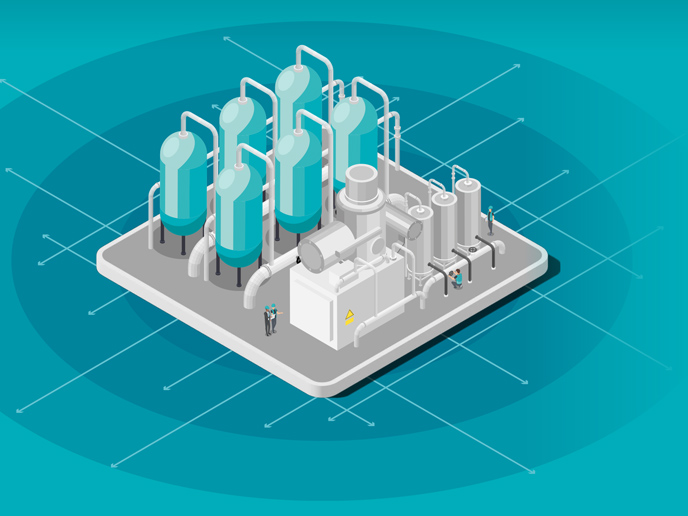New technologies for cost-efficient biomethane production
“The costs of producing biomethane with renewable energy or hydrogen should be comparable to the costs of other renewable technologies.”
Stefano Proietti, BIOMETHAVERSE project coordinator
Biomethane, a renewable natural gas made from decaying organic matter, such as food, agricultural and animal waste, could play a key role in achieving Europe’s ambitious climate and energy objectives. However, in order for this to happen, new technologies are needed to efficiently produce it. The EU-funded BIOMETHAVERSE project hopes to achieve this. “The project aims to diversify the technology basis for biomethane production in Europe, increase its cost-effectiveness and contribute to the investment in and uptake of the biomethane market,” says Stefano Proietti, senior researcher at ISINNOVA, the project’s lead partner. The project looks to address some of the main hurdles to creating a biomethane ecosystem, including the costs of producing it. “The costs of producing biomethane with renewable energy or hydrogen should be comparable to the costs of long-term energy storage or other renewable technologies,” notes Proietti. The project also aims to advocate the creation of policies and incentive schemes that support biomethane production. For example, some of the planned technologies will convert excess electricity into biomethane, while others will leverage existing gas grids for its storage and transport. According to Proietti, the project will involve a combination of innovative technologies, in-depth research into new feedstocks and careful market analysis. “Demonstrator replicability, market penetration and policy are all at the heart of the BIOMETHAVERSE project, as are cross-site learning, upscaling, sustainability and the circular economy,” he adds. Although very much a work in progress, Proietti is confident that the project will succeed in reducing the costs of producing biomethane by as much as 44 % and will enable an estimated 66 % increase in biomethane production by 2030. Not only will this significantly reduce greenhouse gas emissions, it will also create an estimated 294 000 jobs. “The successful implementation and adoption of our biomethane technologies will decrease Europe’s energy costs, reduce our dependency on fossil fuels and help us achieve our Green Deal objectives,” concludes Proietti.
Keywords
biomethane, biogas, natural gas, sustainability, renewable fuels, green energy transition, REPowerEU, Research and Innovation, renewable technologies, biomethane technologies, solar energy



